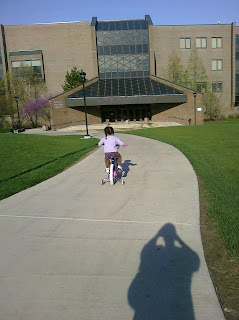So the holidays are here and maybe the stress is starting to settle in a little deeper. For me there is the hustle and bustle of the gift-buying and preparations and the general collective stress that sets in, there is the excitement and anticipation of the kids hoping for wonderful presents, the holiday lights and the darkness of winter and Nature’s stillness that underlies all of this activity. All this is available right now in this minute – all at the same time. So, since I get to choose where I place my focus, I choose to place it on the peace – the stillness and silence – and sometimes I’ll chose to focus on the excitement and anticipation.
Even though I’ve had a sense of this underlying peacefulness, to focus on it is a big departure for me this year. Usually I just get stressed worrying about travel plans, what to get for whom, whether the receivers of gifts would like their gifts, and on and on. This year, everybody gets tie-dye (my kids’ idea) and the kids and I are excited to get started on this make-at-home project. They’re already picking out which designs for whom and which colors. It’s fun. Hopefully people will appreciate their gifts, and the love with which they were made and offered. But none of us can control what others think or feel. All we can really control is that we do our best to love, we place our focus on what nurtures us and those around us, and we give ourselves a break, every so often, to check in with the peace that is always here.
Not sure how to check in? Try this: Notice that you have a body, and that your body is breathing. Begin to follow the flow of your breath. Notice that each time you inhale and exhale, the breath comes from stillness and goes back to stillness. You may also feel that it arises from silence and goes back to silence. Just notice the rising and falling of the breath, from stillness and back to stillness, from silence and back to silence. Now instead of focusing on the breath, focus on the stillness, or the silence. You might begin to feel that it is always there, and that your body begins to feel more peaceful as you focus your attention on the stillness or the silence – the peace that is always here. Doesn’t take long to check in, but it feels pretty good, and you can even do it in line at the mall!
Happy holidays!



